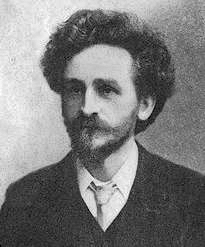 Image via Wikipedia
Image via Wikipedia
L.D. Turner
Renewing the Mind: Conscious Cognition and Affirmative Prayer
Throughout his letters, Paul repeatedly demonstrates his understanding of the importance of dealing with our minds. The Apostle clearly recognizes that the mind is where our behaviors and actions begin and he also understands that it is in the mental realm where the enemy is most likely to launch his most diabolical attacks. It is for this reason that Paul tells his readers over and over again how important it is for the believer to renew the mind.
At Sacred Mind, clients and visitors often here phrases and terms related to dealing with the mind in general and the process of renewing the mind in particular. In our training programs on “Strategies for Renewing the Mind” and “Who We Are In Christ,” we typically explore the importance of developing what we call Conscious Cognition. Basically, conscious cognition involves assisting participants develop the ability to be acutely aware of their mental functioning. The more conscious we are about out thinking, the more equipped we are to master our minds.
“Conscious Cognition” is based on the teachings of Paul regarding the renewal of the mind, tearing down strongholds, and taking thoughts captive for Christ. The actual practice of conscious cognition involves disciplines such as
positive thinking, positive imaging, positive statements, and affirmative
prayer.
We have found that the most fruitful exercise for most people involves what is popularly referred to as Affirmative Prayer.
How to Form an Affirmative Prayer
1. Affirm your identity as a child of God and a new creation in Christ.
2. Affirm your positive connection with the Divine and the presence of the Holy Spirit in your life.
3. Voice your desired goal in positive, affirmative words in the present tense.
4. Express your gratitude for having your desire granted by God.
5. Close prayer in Jesus’ name with a firm and joyous Amen!
After your formal prayer session, your Affirmative Prayer process continues in three important ways. First, maintain a sense of positive expectation in which you faithfully believe your prayer has already been answered. This is not wishful thinking or a “fake it til you make it” pretense. Instead, it is the faithful acknowledgement that, just as scripture promises, your blessing has already been provided on the spiritual world. This brings us to the second manner in which your Affirmative Prayer process continues. You act as if the object that you prayed for has already been obtained in the physical world. What this does is aid in the process of bringing your already granted blessing from the spiritual world down into the flesh and blood reality of your daily life.
The third way in which your Affirmative Prayer session continues involves a personalized
affirmation. This type of affirmation is a short phrase, usually gleaned from Step Three in the process described above. For example, if you prayed for an increased sense of confidence and courage, your personalized affirmation might be:
The Lord is my shepherd, I shall not want; I am courageous and confident in all my endeavors.
The important point here is to repeat this shortened form of your prayer session as often as possible. It is especially important to repeat your personalized affirmation when you first arise in the morning, and just before going to sleep. Another method that has been helpful for many Christ-followers is to coordinate their affirmation with their breathing, just as when performing “breath prayers.”
The Lord is my shepherd, I shall not want. (inhale)
I am confident and courageous in all my endeavors. (exhale)
I have found affirmative prayer to be an excellent modality of approaching our relationship with the Creator. As stated earlier, effective affirmative prayer is always based on scriptural promises. The actual process of affirmative prayer as described in the preceding paragraphs is not designed to remind God of his promises. God does not need to be reminded of anything. Criticizing the method of affirmative prayer based on the “reminding God” notion is a mistaken and futile practice.
Affirmative prayer does help remind us of our need for God, our utter dependence upon God, and of the generous blessings he has already provided for us. With these thoughts in mind, let’s look at an example of an affirmative prayer that meets the criteria laid out above.
I take possession of the reality that I am a child of the Living God and a new creation in Christ. I acknowledge that because I have been adopted into the family of the One True God, His eternal light shines in me and through me, casting His presence and His love onto a dark, hurting world. The Holy Spirit, a full one-third of my Heavenly Father lives in me, making me powerful and whole, capable of doing great things for the glory of God.
Therefore, I go forth each day with confidence and courage, meeting the challenges of life with faith and optimism, knowing that the Lord is within me, equipping me for any circumstance.
Lord, I thank you for your presence within me, beside me, above me, and in every circumstance, and I am especially grateful for your gifts of courage and confidence, the very things I requested as I approached your throne.
With love and gratitude, I pray these things in Jesus’ most holy name, the name at which every knee shall bow. Amen…
Remember also that the abbreviated form of the prayer is:
The Lord is my shepherd, I shall not want; I am courageous and confident in all my endeavors.
I have found that for both the long form and the short form, repetition is the key to success. Our bad habits of thought were formed in the exact same way as we, along with the Holy Spirit, will go about forming new habits of thinking that will move forward the process of renewing our minds. Each time we repeat our positive affirmations and our affirmative prayers, we make a little progress toward our goal. We repeat it, and we move forward a little more – and on and on it goes. The good news here is that we can soon begin to see change taking place and that change, no matter how small, is significant. When we experience the fact that change is possible; when we see through our own experience that we are actually making gains – this provides us with the ability to live in hope and optimism.
As time passes and we remain faithful in our practice, the pace of change accelerates. Our friends and associates will notice that we are somehow different. Even if they can’t put their finger on exactly what has changed, they know that for some reason you are easier to be around. Whereas before you often greeted them with a flat expression and a diverted gaze, now you approach them with a smile and look them in the eye. And guess what, my friend? This opens a door for you to share the source of the “new you.” As you continue to manifest the fact that you are, indeed, a new creation, you will have increased opportunities to share how this all came about.
Renewal of the mind, as Paul pointed out, is the key to an effective walk of faith. If you have been ignoring Paul’s insistence of cognitive renewal, why not get back to it? And if you have been avoiding this teaching, why not push yourself to get on with it? Your progress will be minimal until you place a renewed mind in the new you, the new creation.
Also, I suggest that you keep in mind the goal of all this work toward the mind’s renewal, as well as other disciplines in your program of
spiritual formation. You want to get to the point where, as the Apostle, you can say with confidence the four words that best describe the state of the truly transformed Christian’s life:
Not I, but Christ…
© L.D. Turner 2010/All Rights Reserved
 Image by Unitopia via Flickr
Image by Unitopia via Flickr Image by Unitopia via Flickr
Image by Unitopia via Flickr Image by hickory hardscrabble via Flickr
Image by hickory hardscrabble via Flickr Image via Wikipedia
Image via Wikipedia Image via Wikipedia
Image via Wikipedia Image by Rennett Stowe via Flickr
Image by Rennett Stowe via Flickr Image via Wikipedia
Image via Wikipedia Image via Wikipedia
Image via Wikipedia Image via Wikipedia
Image via Wikipedia